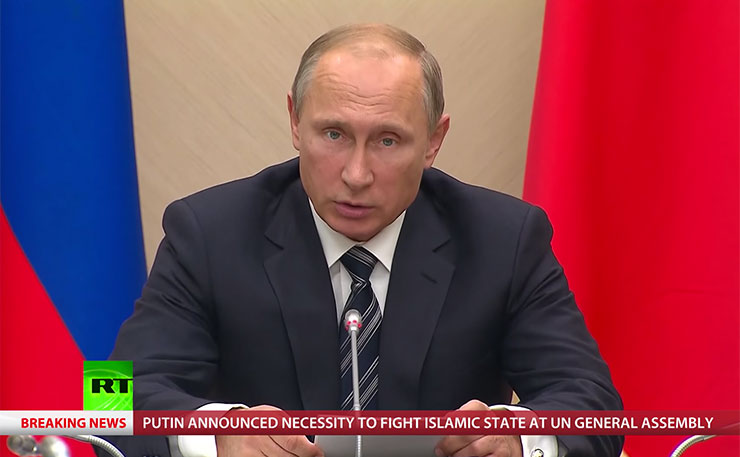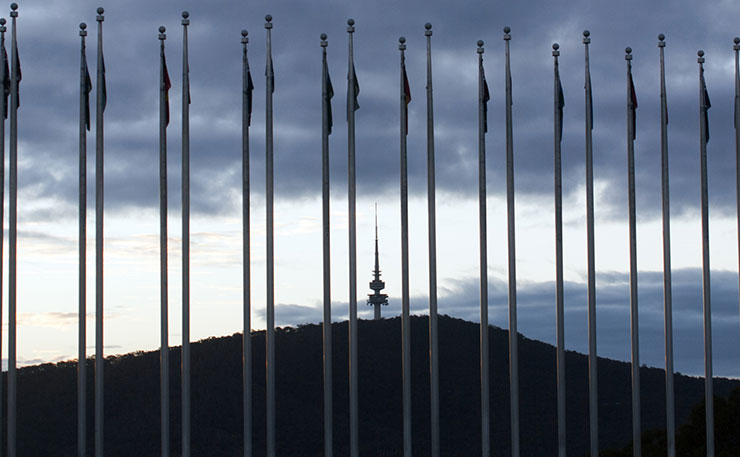Westerners don’t really live in democracies, at least not ones where the true majority prevails, writes Stuart Rees.
Characters in Australia who advocate government by plebiscite think that such a voter mechanism would represent the will of the people and would therefore be truly democratic. A quick look at the political impasse in the ol’ mother country shows the absurdity of such thinking.
To justify exiting Europe, Britain’s Brexit politicians keep repeating that they are following ‘the will of the people’, a reference to the 52% Leave vote in that referendum. In history and in many countries, such ‘will’ has ushered in fascist regimes, dangerous egocentric dictators and led to decades of tyranny and world wars. In the case of Britain’s Brexit, the will of the people looks like a giant con.
Deceit and Illegality
Key campaigners for Brexit, Boris Johnson and Nigel Farage made a host of claims about the dangers of continued EU membership and gave promises which they knew they could not keep. Farage played the race card. He insisted that Britain would be swamped by migrants if the British voted to remain in Europe. Johnson asserted that every week, millions of pounds would be returned to the National Health Service if Britain no longer had to pay dues to the EU.
Both men promoted fear. By painting images of British Empire glory days following EU exit, they imitated Trump’s ‘make America great again.’ They spoke of a new autonomy to be sustained by trade agreements with countries such as Australia.
Increasing evidence that the bully boys of international politics, Donald Trump and Vladimir Putin, wanted to contribute to the break-up of human rights-based Europe is another reason for arguing that the historic referendum vote should be challenged. Russian interference and funding for the Brexit campaign raises more questions about the authenticity of the outcome.

Since those questions were asked, the Vote Leave campaign was fined for illegal referendum overspending and has been referred to the police. Labour Party MP Chuka Ummuna says, “We know Vote Leave lied on a gargantuan scale, we now know they cheated too.”
If the will of a people has been based on fear, lies, illegalities, foreign interference and fantasizing a future based on recall of a distant colonial past, it can and should be questioned.
It is democratic to question false premises. It looks undemocratic to proceed with the fiction that a vote, in which large numbers of people were conned, represented a sacrosanct people’s will.
Confusion and polarization in Britain over the terms in which Britain would leave the EU reveals the dangerous forces behind the Brexit vote. The tabloid press brands as traitors the Conservative MP’s who voted to remain in Europe. Encouraged by derision and hate masquerading as journalism in Newscorp papers, right-leaning individuals have sent death threats to such MP’s.
Only two years ago, the Labour MP Jo Cox, who campaigned to stay in Europe, was murdered. The tabloids are using ‘the will of the people’ as the basis for racist intolerance and their consequent refusal to be even slightly circumspect about opposing views.
On those grounds too, there’s a case for reframing what was meant by a referendum in which arguments were built on shifting sands. They look more like quick sands which make it hard for anyone to escape the consequences of a vote which contributes to European disunity, and which is giving pleasure only to far-right nationalist regimes.
The Bricks of Civil Societies
In a rule-based democracy, reinforced by international law, it is imperative that the will of the people be expressed free of manipulation, not compromised by deceits which do not match democratic ideals.
To achieve those principles, elections have international observers to discourage intimidation of candidates, to challenge vote rigging, to provide transparency in the counting of votes and in the endorsement of outcomes. Guidelines for election observers can be applied not just to states struggling with democracy but also to countries such as the UK, Australia and the USA where democracy may be taken for granted but in recent years looks fragile, sitting across fault lines created by bullies and fraudsters.
In key features of the operation of democracies, a servile mainstream media has colluded, aided or ignored the manipulators and has facilitated their unethical and illegal conduct.
No-one pretends that every feature of elections, including the conduct of referendums, can be squeaky clean, but at least the rules can be recited, the ideals expressed and the media encouraged to write about ethics, the rule of law and even about justice. In reaching for those ideals, and in teaching others why these are the bricks of civil societies, participants in democracy – candidates, influential NGOs, branches of the media – can represent a genuine will of the people. The alternatives to principled conduct lie in cowardly deceit and mafia-like thuggery.
An ethically principled approach to elections can also be applied to the formulation and implementation of policies but with additional conditions: to seek justice and to do no harm. Such aspirations already exist in statutes and legal principles. They are called universal human rights.
Influenced by human rights perspectives, policy deliberations would produce different outcomes from those in states which have fostered inequalities, passed laws to erode freedom of speech, starved public institutions, imprisoned asylum seekers and treated them as illegals.

There is often a mismatch between the views of members of the public and the values being promoted by politicians and their advisers. In the UK, more than 50% of British citizens say they welcome and want to help travelling Roma people, but the government plans to deport them unless they can give satisfactory answers to questions about identity, evidence that they have no police record and can give their permanent address. Roma people without computers or smartphones, many of whom are illiterate, are expected to satisfy government demands by filling in forms online.
In Australia, public surveys show significant majorities in favour of recognising Palestine and seeking justice for Palestinians. The government of Australia only expresses the Israeli narrative as in past prime ministers’ ingratiating, grovelling words to Prime Minister Benyamin Netanyahu that Australia’s and Israel’s values are the same.
Successive surveys show the Australian public in favour of financing schools and hospitals rather than receiving tax cuts, but such preferences are ignored and even ridiculed by the award of substantial tax cuts to corporations.
Justice, human rights and policies of nonviolence represent commitments to a common humanity. Striving for such goals can be the litmus test for social and foreign policies and would be a far cry from the bullying, lying and illegalities which affected the UK Brexit referendum.
Only if democracies are human rights based can we can speak with confidence about the will of the people. In the Brexit controversy, the Leave constituency’s trumpeting about the will of the people now looks as dangerous as it was deceitful, and democratically absurd.
Donate To New Matilda
New Matilda is a small, independent media outlet. We survive through reader contributions, and never losing a lawsuit. If you got something from this article, giving something back helps us to continue speaking truth to power. Every little bit counts.




